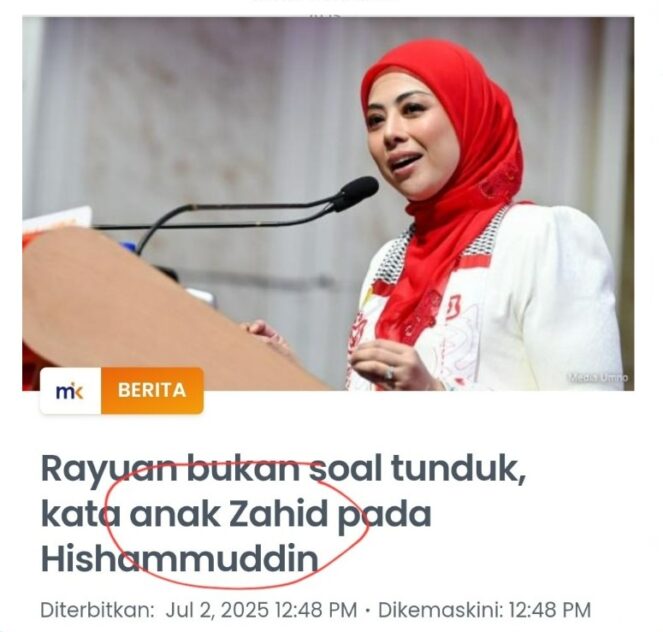PRIME Minister (PM) Datuk Seri Anwar Ibrahim as Finance Minister will table his maiden budget for 2023 tomorrow (Feb 24). This must be the toughest budget in history and will define Anwar’s mettle as PM which he secured after a tumultuous career in politics that no one else would have endured.
Yet his hands are tied up in all fronts. A record national debt including liabilities of RM1.5 tril, rampant corruption that led to the worst corruption perception index, government finances tied up in huge sunk costs such as emoluments and debt servicing, revenue barely enough for operations, and development depending totally on borrowings.
Nonetheless, Anwar is expected to announce an expansionary budget to keep the people happy, ride out the looming recession, and at the same time reduce budget deficits.
In my last article, I asked why the government has not adopted public sector accounting standards (PSAS) to manage public finance. It is not a matter of how much money is budgeted, but how well the finances are managed to solve all the constraints and intractable issues I mentioned above.

In this article, I will explore how PSAS—illustrated with current abuses of public finances—can ensure public finance is prudently managed to achieve our national policy objectives.
According to the 2021 International Public Sector Financial Accountability Index (the standard widely used by governments), Malaysia is among the 30% of countries that report based on cash-based accounting, with 30% reporting totally on an accrual basis and 40% on a partial accrual basis.
Yes, in terms of public finance management and reporting, we are among the worst 30%. Somehow, we seem to excel in the bottom league of nations.
One can easily correlate this lack of PSAS to why our corruption is high, leakages and wastage are mounting, and why we spend tons of money yet social objectives are not met especially in eradicating poverty.
I would like to stress here that our Federal Constitution requires preparation of annual financial statements comprising income and expenditure [Article99 (1)], and assets and liabilities [Article 99(4)]. This can only be done if we have a system of accrual-based accounting.
Anyone who has taken a basic course in bookkeeping would understand the technical terms I have used here, but the fact that the government authorities have not implemented them points to some ulterior motives to keep our national treasury vault open to abuse.
So I have to do a crash course here on accounting standards to illustrate the full potential of transforming public finance management to world standards.
Cash-based vs accrual accounting
Cash-based is just that, to spend money freely as one gets hold of it. Government agencies that undertake Christmas shopping at the end of the year on surplus funds or supplementary budgets are examples where cash-based accounting is abused.

Accrual means revenue or costs are matched to the period to which they relate or accrue, usually the financial year. Accrual-based accounting is the basis for preparing the balance sheet (financial position, or assets/liabilities) and income-expenditure (financial performance).
Both are inter-related where cash turns into assets and has to be ‘balanced’, otherwise red flags would appear.
In a simple analogy, a child growing up depends solely on cash flow from parents but upon becoming an independent adult, he/she not only has to watch income and expenditure but also wealth creation through assets and liabilities.
That our government is implementing only cash-based accounting shows it has not achieved financial maturity like an adult yet.
How PSAS raises early-warning triggers
In accrual-based PSAS, there is no such thing as off-balance sheet items or contingent liabilities like ‘support letters’. Every liability in whatever form has to be immediately reported in the financial statements.
Yet our government frequently uses these tactics to hide such liabilities from public accounts. Anwar’s recent announcement of about RM300 bil in liabilities came as a shocker. But to any accountant or auditor, this is plain misreporting by those involved.
1MDB came to light because the company cannot balance its accrual-based financial statements. The government tried to cover it up by pumping in more money, but auditors refused to certify their accounts. Even the audit by the Auditor-General was allegedly tampered with.

If the procurement of the Littoral Combat Ships (LCS) was monitored as a programme on an accrual based PSAS, the financial abuse could have been discovered in the first year itself.
Cash injected by the government would be shown as work-in-progress or stocks on the balance sheet. It is unimaginable that RM6 bil out of RM9 bil has been dished out and the only assets are a mock-up demonstration ship, and a warehouse full of near obsolete stocks.
Recently the Auditor-General reported that FELCRA’s financial statement for the years 2019, 2020 and 2021 has not been finalised. This raises a red flag on the actual financial situation of FELCRA.
The Auditor-General has also reported that 108 out of 136 ventilators procured for COVID-19 were unusable. Yet the government has paid RM24.07 mil for the purchase. Any purchase should have been recorded in the books and payments made based on demonstrated progress.
But in this case, it was reported that the government did not sign any agreement/documentation with the suppliers. Was this meant to keep the purchase off the accounting records?
Urgent need for government accounting standard reforms
The above illustrative examples are a snapshot of how an accrual based accounting standard would have exposed any abuse of public finance as it occurs. Selective post-audit is like closing the gate after the horses have bolted.
Anwar’s pursuit of power-abusers past and present is unprecedented which any right thinking Malaysian should support but prevention is better than cure.

The accrual based public sector accounting standards has to be implemented immediately. We can see clearly why the administrations of the past did not implement it.
I believe Anwar has the political will and leadership to implement it now. There are sufficient talents and capacity in the civil service to do it internally. I will write in another article how the accrual based accounting system can possibly be implemented within this year based on my own experience.
Coming back to Budget 2023. Yes, PM Anwar can have his cake and eat it, too. The PSAS is all about doing more with less, extracting more value from every ringgit, and yet ensuring the policies and strategies of the government are fully implemented. – Feb 23, 2023
Dr Raman Letchumanan is a former senior official (environment) in Malaysia and ASEAN, and Senior Fellow at Nanyang Technological University Singapore. He is an accredited accountant (Malaysia/UK) and has a Ph.D. in environmental economics, among other qualifications. Contact: [email protected].
The views expressed are solely of the author and do not necessarily reflect those of Focus Malaysia.









